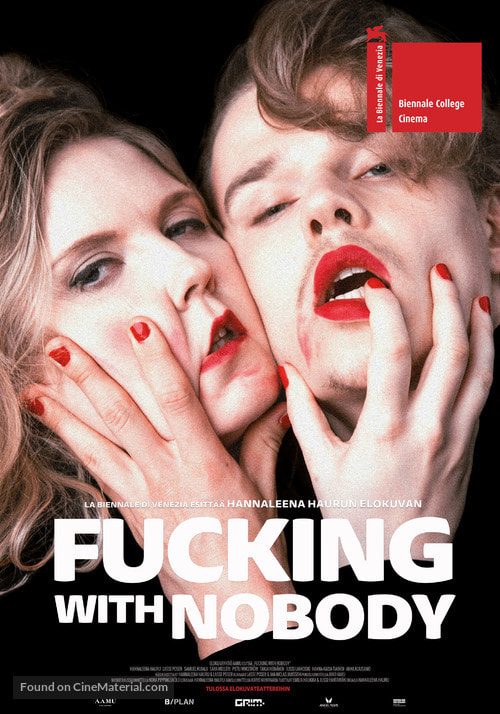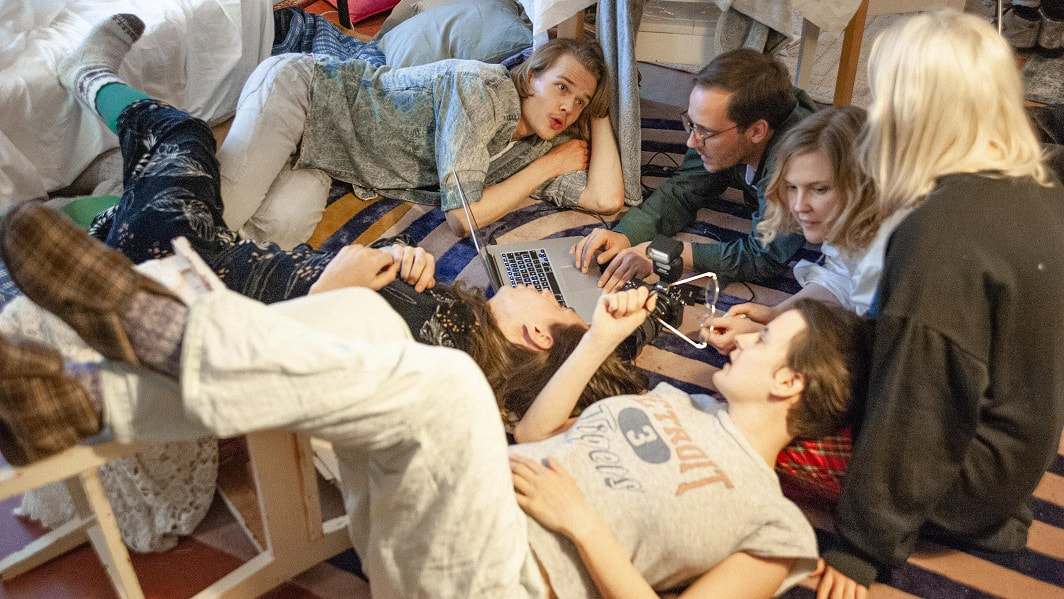|
Hanna (writer and director Hannaleena Hauru) is failing in her career as a film director and failing at love. Along with her friends she sets up a social media ‘experiment’, pretending that she’s met a man and is in the midst of a whirlwind romance. They intend to examine power dynamics within heterosexual relationships by dropping in clues which will force people to question those structures. As the plan progresses they create carefully choreographed photo shoots and short videos, making it look like Ekku (Samuel Kujala) is madly in love with her. But Ekku has a relationship of his own which is strained by the venture. Soon the project starts to fall apart and the line between the film, the project, and the filmmakers becomes incredibly blurred, creating confusion. Society’s love of relationships and the importance of being in a couple is probed and brings up some interesting points. Hanna goes from being a pitied single woman to being fawned over when she gets into the fake relationship. People praise her, celebrate her ‘achievement’ in finding a man, shower her with attention. If you pull on that thread you soon realise that single people live somewhere in the space between being seen as strong and independent, and being pitied. They deal with single supplements, food coming packaged for two, not having any celebrations of relationship milestones, they don’t get the tax breaks or deals that couples do. Despite there being as many single people as families, western society values couples more highly. To find a partner is to have ‘achieved’ something. But on the flip side, the characters who are in relationships are not happy. They are shown to have unfulfilled lives and are riddled with jealousy and regret. Perhaps then we need to shift our focus and take coupledom off its pedestal. Society’s obsession with social media and curating unreal impressions of their lives is also a key theme. Some use social media as a way to anonymously express their full range of emotions. But there are reams of influencers and unrealistic lives on display. The efforts that go into the construction of elaborate photoshoots are exposed. Reality and un-reality are blurred together in both the plot and the execution of the film and things start to get muddled. Meta is layered on top of meta as the ruse starts to fall apart. You may find yourself waiting for the key plot twist or reveal, only to be given more complications and new layers. Some like to sit in limbo with existential questions. The constantly shifting foundations here are rife for that kind of thinker to layer all kinds of meaning into. Those who prefer a clearer or more linear story may be confused and frustrated. Either way it’s a very bold move from the filmmakers. “Fucking with Nobody” asks some very big questions of society. It makes us think about personal fulfilment, relationships and why society values couples more highly than single people. It also asks us to consider our social media footprints and what impressions we carefully curate about ourselves. The second half of the film becomes filled with paranoia and loses a lot of the momentum and energy that the first half set up, making it more about meta than message. The increasing layers of meta narrative are what will either frustrate or fascinate viewers. Nevertheless this is a film with a big vision and a bold approach. Comments are closed.
|
AuthorHi, I'm Caz. I live in Edinburgh and I watch a lot of films. My reviews focus mainly on women in film - female directors or how women are represented on screen. Archives
December 2021
Categories
All
|





 RSS Feed
RSS Feed
